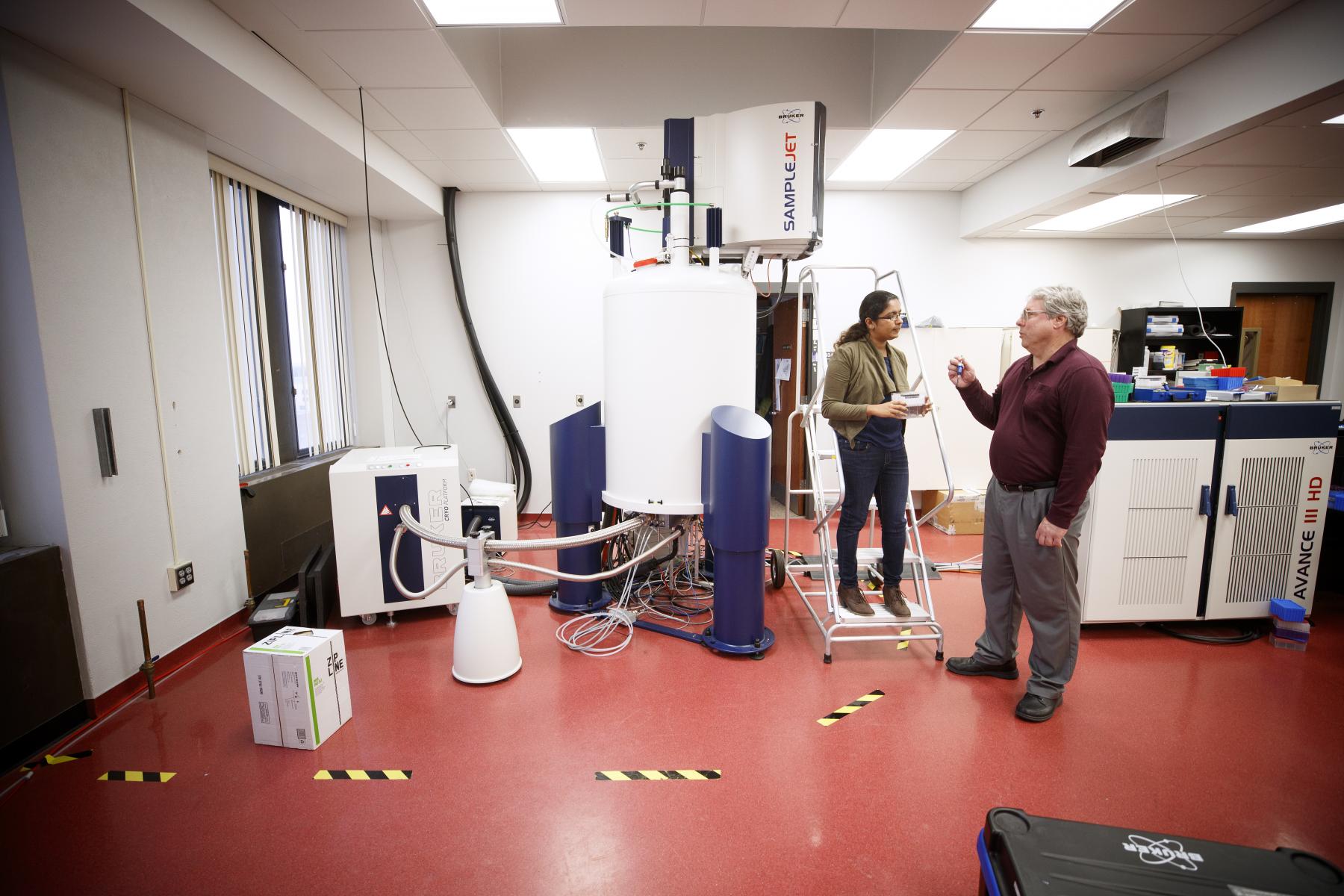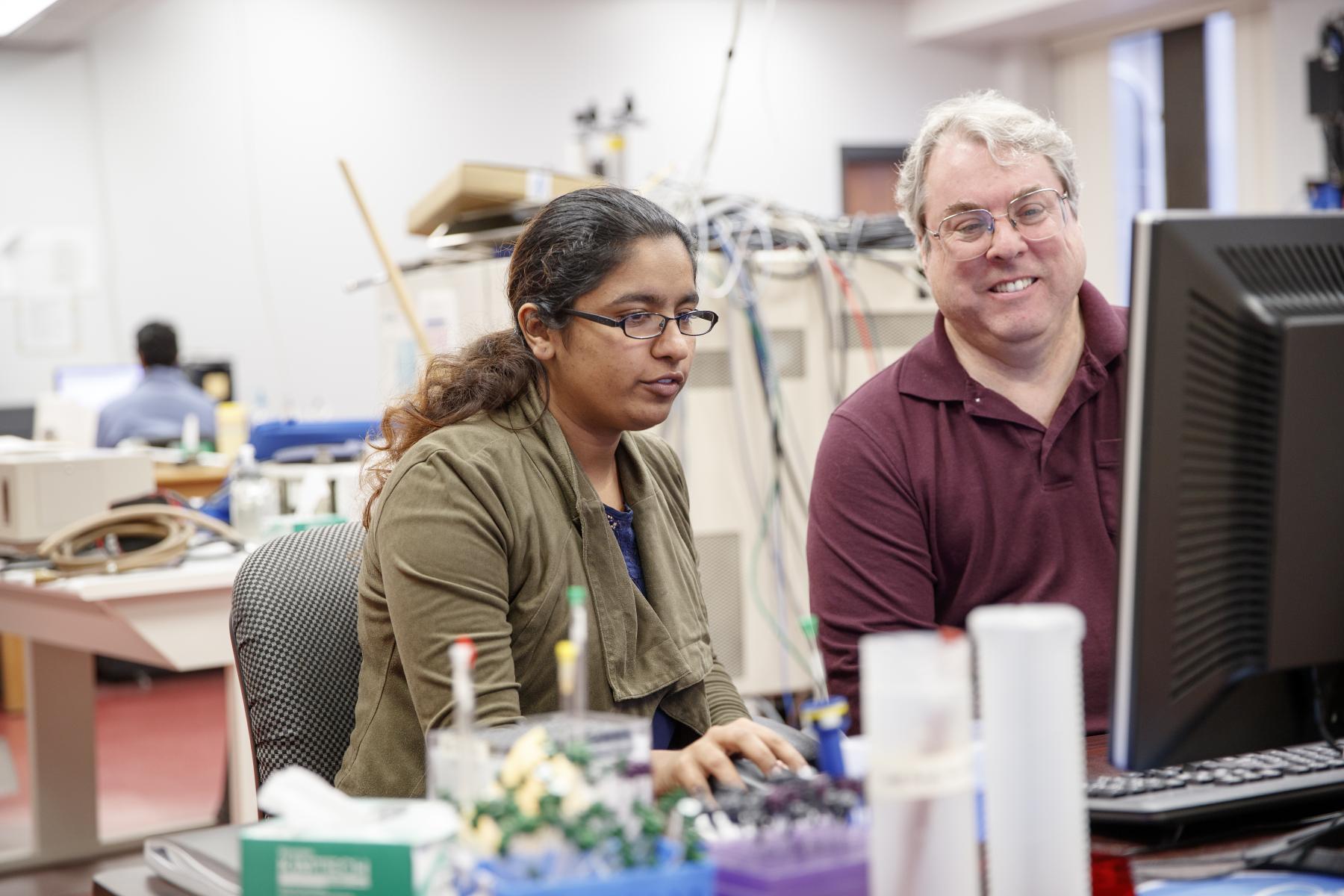Content
The NCIBC Systems Biology Core (SBC) incorporates existing systems biology instrumentation, methodologies, and expertise at Nebraska – expertise from the Nebraska Center for Mass Spectrometry, the Chemistry Departmental Research Instrument Facility, the Molecular Analysis and Characterization Facility, and the Biotechnology Center Bioinformatics Core – under a single organizational structure. NCIBC researchers make extensive use of these facilities and receive the proper support and training in the systems biology techniques that best fit their research needs. The goal of the SBC facility is to provide a sustainable systems biology facility that meets the ‘omics’ and the associated data processing and analysis needs of NCIBC members, Nebraska faculty, and the larger scientific community.
Learn more about Mass Spec, RIF, and MAC facility services
Learn more about Bioinformatics facility services
Typical Workflow for SBC
Project leaders meet with SBC staff to plan experimental methods for their projects. SBC staff work together to collect and interpret data and with the project leaders to address problems and discuss presentation of the results.
New technologies enable the measurement of ‘omics’ data to develop an understanding of the biological systems. SBC offers scientific advice and support for experimental design to your projects, complete platform to in-vitro and in-vivo models and a state-of-the-art mass spectrometry and NMR equipment to generate reliable omics data.
The facilities of Systems Biology Core are located in personal lab space. Individuals who use SBC facilities need to:
- Get permission from SBC personnel
- Follow all lab rules
- Complete all required safety trainings (contact Chemistry safety chairs: https://chem.unl.edu/safety)

Our Services
Proteomic Program
The proteomic program provides mass spectrometry-based analyses of proteins and peptides, including sample preparation, LC-MS acquisition and data analysis. Every experiment is unique and we collaborate to ensure that all aspects of experimental design, sample preparation, sample analysis, and data interpretation are thoughtfully planned to generate results of the highest quality.
Lipodomics & Metabolomics Program
The purpose of our lipodomics and metabolomics program provides support to the life sciences research community to explore and understand the role of lipodomics and metabolomics in systems biology. This is achieved through identification and quantification of biochemical products from metabolism by NMR and MS analysis. We can help you to deal with samples of different origins, such as biological fluids, tissues, cells, plants and food products.
Data Analysis and Sample Preparation
The sample preparation is critical to getting good data on any instrument. SBC scientists can work with research groups on sample prep methodology or can do this work. All users must meet with the NCIBC scientists to confirm the number of samples and the methods needed for these samples.
Guide for Lipodomics & Metabolomics Experiments
This guide provides a good practical foundation to lead our users through basic steps involved in lipodomic and metabolomic analysis by Mass Spectrometry. These guidelines can be applied to different types of samples to improvement the quality of the results.
Impact

Impact
The NCIBC Systems Biology Core (SBC) incorporates existing systems biology instrumentation, methodologies, and expertise at Nebraska – expertise from the Nebraska Center for Mass Spectrometry, the Chemistry Departmental Research Instrument Facility, the Molecular Analysis and Characterization Facility, and the Biotechnology Center Bioinformatics Core – under a single organizational structure. NCIBC researchers make extensive use of these facilities and receive the proper support and training in the systems biology techniques that best fit their research needs. The goal of the SBC facility is to provide a sustainable systems biology facility that meets the ‘omics’ and the associated data processing and analysis needs of NCIBC members, Nebraska faculty, and the larger scientific community.